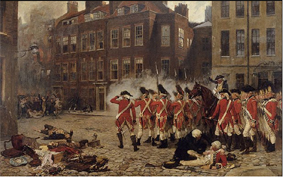
Tim Hollis is a retired Chief Constable of Humberside and has already talked to the Club about the Samaritans. This talk has reflections on 35 years of policing starting with the Met. and concluding in Hull. Since retiring Tim has taken a Master’s degree in history at Sheffield University and the first part of his talk encompassed a brief history of policing in England since Anglo Saxon times.
The nature of policing has been defined as “the monopoly of legitimate violence within a State”. A state can range from the whole Roman Empire with part of its boundary defined by Hadrian’s Wall to a small city. In 1755 Adam Smith wrote that to carry a state to the highest degree of opulence from the lowest barbarism requires peace, easy taxes and a tolerable administration of justice.
In Roman times the office of constable in the army had the important responsibility for the horses. In German culture marshals had a similar responsibility. For 367 years the Romans ruled Britain through their army. There was no police force. In Anglo Saxon times there were reeves who were supervising officials with local responsibility to the King within the shire. They could hold court and try local civil and criminal matters. In Norman times these shire reeves became sheriffs.
Today a police constable takes an oath to maintain the sovereign’s peace. In 1361 the Justices of the Peace Act made law the concept of keeping the peace. A ” breach of the peace” is in everyday use and a person can be ordered by the Magistrates’ Courts to keep the peace or to be of good behaviour.
It was not until 1689 with the English Bill of Rights that there was legislation for a standing army and the first local militia was created in 1707. Tim explained how there are fundamental differences between the military and a police force. The latter should handle public disorder situations. In 1780 a militia was used in the Gordon Riots and 285 people were killed.
There has always been a problem of who should pay for a police force and it was only after the Chartists movement that in 1856 it was agreed that everywhere should have a police force. It took until 1896 for Barnsley to have one.
In 1977 when Tim joined the Met. after a career in the Parachute Regiment, pay was low as were entry requirements. Things improved in the Thatcher era. The ABC of policing have not changed however. They are: Assume nothing; Believe nobody; Check everything. Young constables on the beat are subject to an enormous variety of problems requiring mature judgement including suicide and domestic violence. The 3 P’s they warned about are: Prisoners; Prostitutes and Property.
For a Chief Constable the 3 P’s change to Politicians; Press and Public. For further insights you must attend his talk!
Tim is a natural and energetic communicator and without slides, he kept his audience enthralled for over an hour on matters best described are far reaching.
